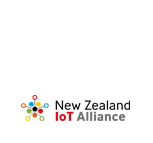KotahiNet are focused on the future. They are a New Zealand company; visionaries in the Internet of Things (IoT) space, and world-leading game changers in IoT. Over the past growing season, KotahiNet have been involved in the IoT pilot at Kowhai farm, Canterbury.
Kowhai Farm, operated by the Foundation for Arable Research (FAR) and owned by Lincoln University is currently hosting a number of IoT sensors in a demonstration trial project to look at the real-life results of emerging agritech innovations.
At the farm, KotahiNet have installed two soil sensors to measure soil moisture, temperature, and electrical conductivity levels. This is providing continuous information on soil conditions and irrigation advice. These sensors are using the LoRaWAN network that KotahiNet have brought to New Zealand.
Vikram Kumar from KotahiNet says that the IoT pilot has helped to demonstrate that their LoRaWAN network is ideal for arable farming as it supports low-power, long-range Internet of Things devices, and covers the pilot area.
“KotahiNet’s LoRaWAN network works with sensors that have a long battery life – up to 10 years. Compared to Wi-Fi and Bluetooth, the LoRaWAN network covers a larger area, with over 30 km line-of-sight. This makes LoRaWAN networks a whole new connectivity technology, purpose-built for sending typical Internet of Things data,” says Vikram Kumar.
This network is used by customers, as well as KotahiNet, both for the pilot and other regular commercial uses. This includes Grounded, who have also installed two devices at Kowhai farm to measure soil nutrient loss.
“Data from IoT sensors is transmitted immediately to any destination. As our sensors are powered by a long-life battery, all you need to do is switch them on to start getting readings. These can be displayed visually as graphs, mapped and trigger notifications – vital in making sure the information from the sensors is useful,” says Kumar.
The innovative solutions provided by IoT devices continue to create more efficient ways to monitor and measure real-time problems. In addition to agricultural uses, IoT devices can be applied across a wide range of uses from creating smart cities, providing home security, and supporting the health sector.
Kriv Naicker, NZ IoT Alliance Chair, says “KotahiNet is a key member of the NZ IoT Alliance and is really demonstrating how IoT can be used to assist farmers with business decision making. It’s really not just about the technology but how the technology is applied within their business contexts. As more data points are collected and analysed, we’re excited about the value this additional information gives to the farmers.”
The next steps for KotahiNet are to take the data from their own sensors and collaborate with other businesses in order to provide strategic advice and actions for growers.






